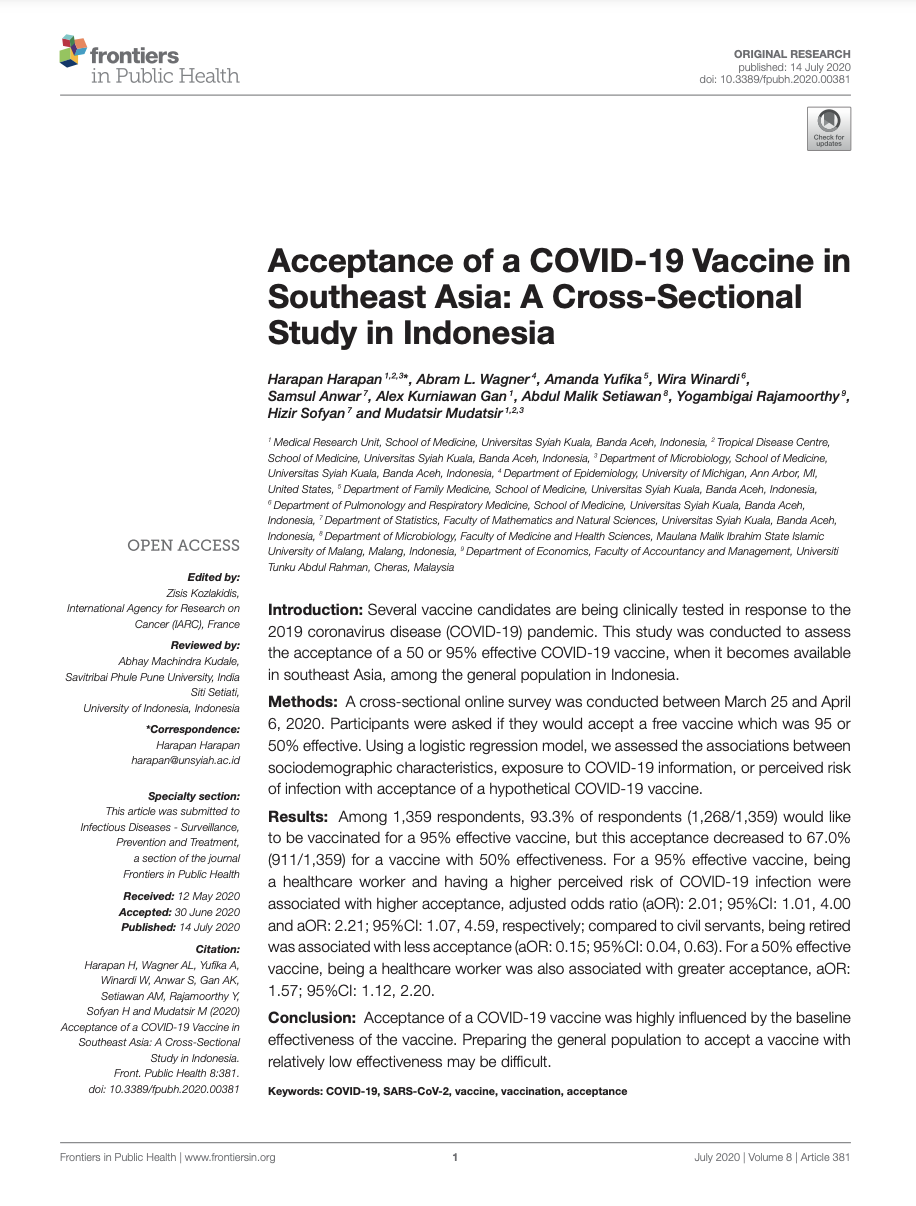Acceptance of a COVID-19 Vaccine in Southeast Asia: A Cross-Sectional Study in Indonesia
Description
Several vaccine candidates are being clinically tested in response to the 2019 coronavirus disease (COVID-19) pandemic. This study was conducted to assess the acceptance of a 50 or 95% effective COVID-19 vaccine, when it becomes available in southeast Asia, among the general population in Indonesia.
A cross-sectional online survey was conducted between March 25 and April 6, 2020. Participants were asked if they would accept a free vaccine which was 95 or 50% effective. Using a logistic regression model, we assessed the associations between sociodemographic characteristics, exposure to COVID-19 information, or perceived risk of infection with acceptance of a hypothetical COVID-19 vaccine.
Among 1,359 respondents, 93.3% of respondents (1,268/1,359) would like to be vaccinated for a 95% effective vaccine, but this acceptance decreased to 67.0% (911/1,359) for a vaccine with 50% effectiveness. For a 95% effective vaccine, being a healthcare worker and having a higher perceived risk of COVID-19 infection were associated with higher acceptance, adjusted odds ratio (aOR): 2.01; 95%CI: 1.01, 4.00 and aOR: 2.21; 95%CI: 1.07, 4.59, respectively; compared to civil servants, being retired was associated with less acceptance (aOR: 0.15; 95%CI: 0.04, 0.63). For a 50% effective vaccine, being a healthcare worker was also associated with greater acceptance, aOR: 1.57; 95%CI: 1.12, 2.20.
Acceptance of a COVID-19 vaccine was highly influenced by the baseline effectiveness of the vaccine. Preparing the general population to accept a vaccine with relatively low effectiveness may be difficult.
Additional languages

DETAILS
Publication
Authors
Emergency
Scope
Language
Region
Keywords

